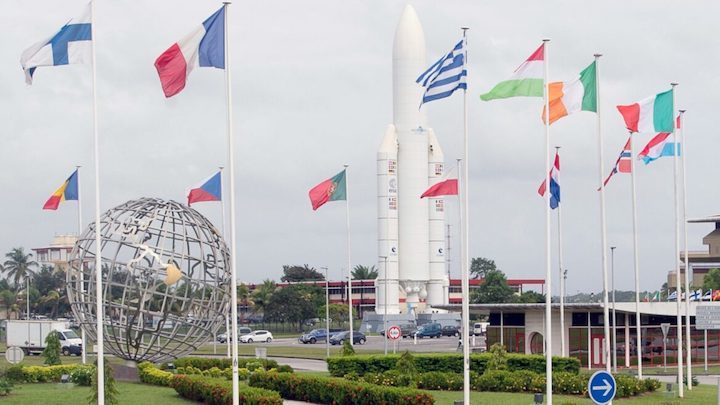30.06.2020
On historic space mission, Israel’s Sheba Medical Center is studying the effect of microgravity on the global health problem of antibiotic resistance.

Arianespace’s Spaceport in French Guiana. Photo: courtesy
Israel’s Sheba Medical Center sent E. coli bacteria into space on June 18 to test its theory that microgravity in space affects how bacteria acquire resistance to antibiotics.
Prof. Ohad Gal-Mor, head of Sheba’s Infectious Diseases Research Laboratory, created the experiment in collaboration with his Sheba colleague Prof. Galia Rahav and two researchers from Italy.
It was sent aboard a SpacePharma micro-laboratory on an Arianespace Vega rocket launched from its Spaceport in French Guiana, carrying 53 micro- and nanosatellites for 21 customers.
Resistant bacterial infections kill 700,000 people annually worldwide. A 2019 United Nations report estimated that globally, 10 million people may lose their lives by 2050 due to such infections.
Moreover, the reported overuse of antibiotics during the Covid-19 pandemic has further contributed to the mounting resistance to antibiotics on a global scale.
The problem of bacterial resistance to antibiotics is a worldwide crisis not only for humans but also for livestock and food crops.
“At Sheba Medical Center, we already have preliminary data suggesting that microgravity significantly affects antibiotic resistance acquisition from experiments we performed on the ground using a special device that mimics microgravity conditions to some extent,” stated Gal-Mor.
“Now we are able to repeat these results under ‘real’ microgravity conditions and see how the conditions in space change this important and universal process. If we understand why microgravity inhibits conjugation [the transfer of resistance plasmids DNA between bacteria], we hope to be able to develop new approaches to prevent this phenomenon in the hospital clinic and beyond.”
Gal-Mor said the experiment will also help Sheba understand the risks of infectious diseases in humans traveling to space. Data will flow during the few weeks-long mission; analysis and conclusions are expected within one to two months.
Sheba’s experiment is supported by the European Space Agency, Israel Space Agency and Italian Space Agency. Underwriting is provided by the Italian Ministry of Foreign Affairs and Israel’s Ministry of Science and Technology.
Quelle: ISRAEL21c
